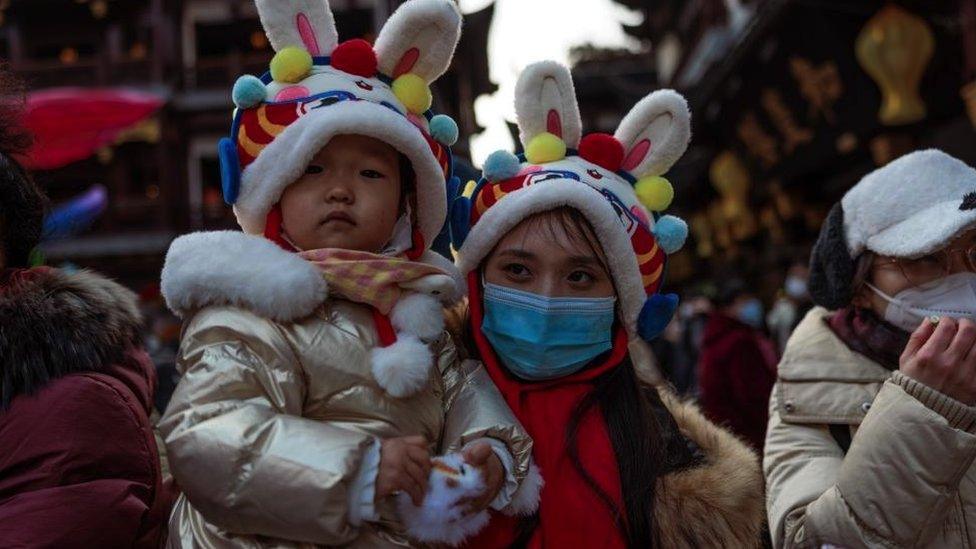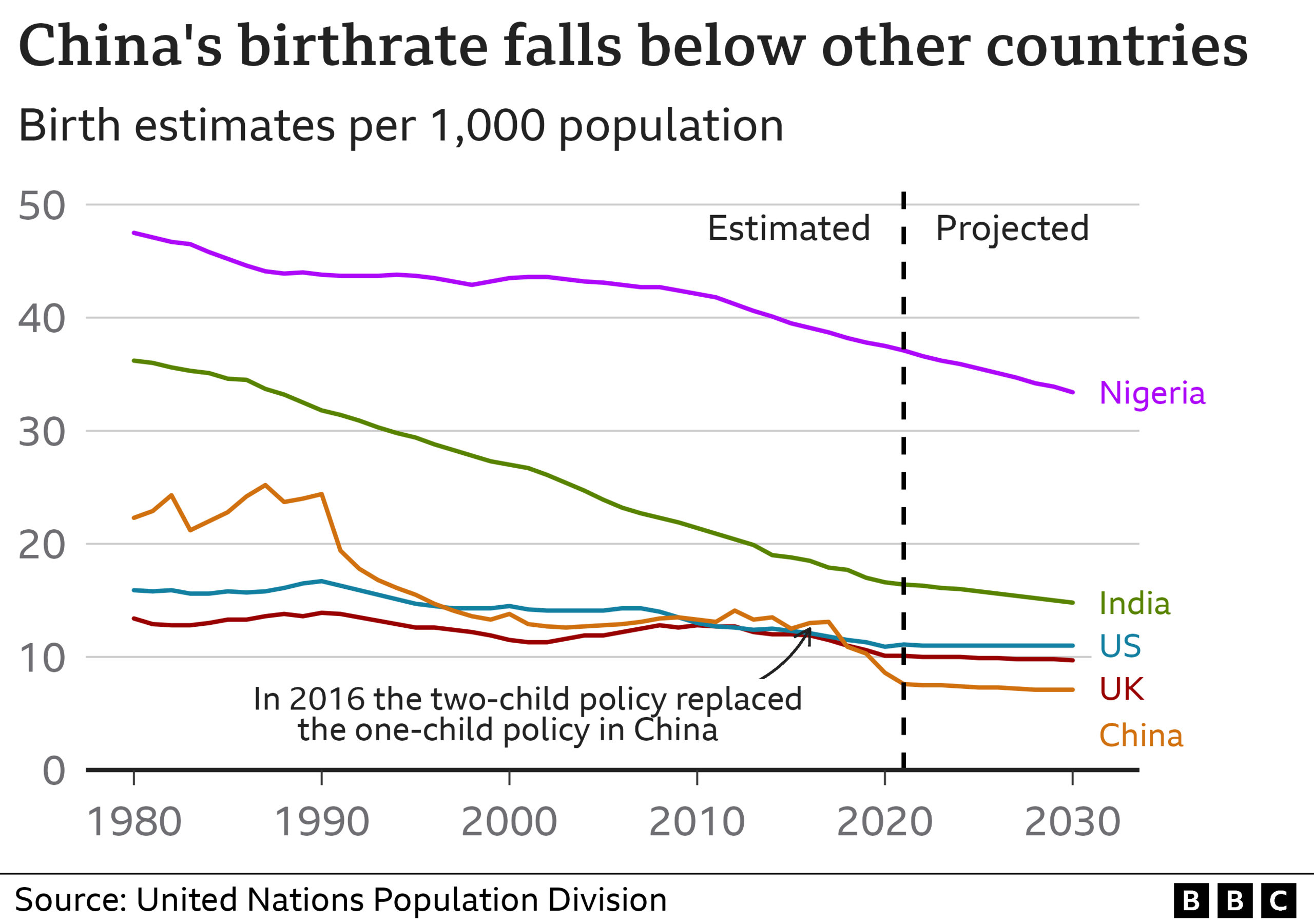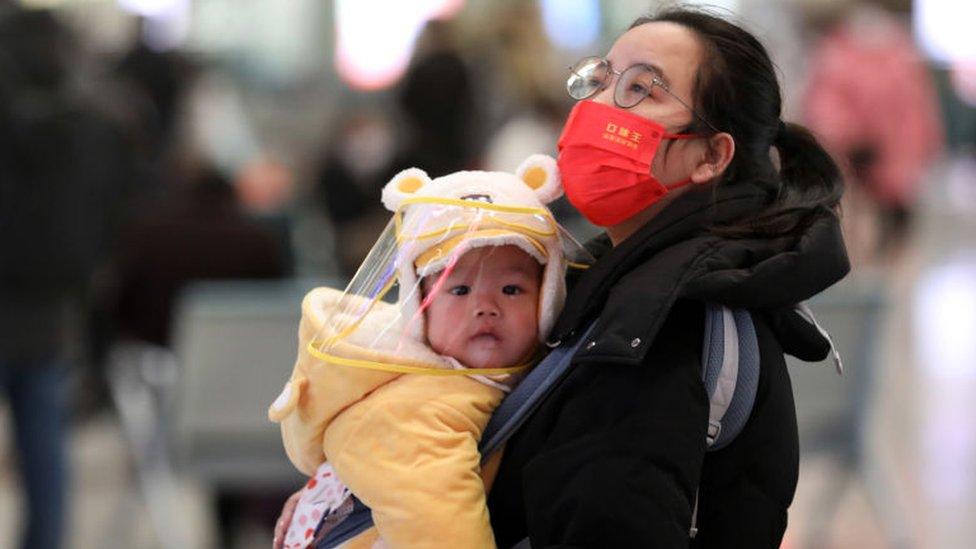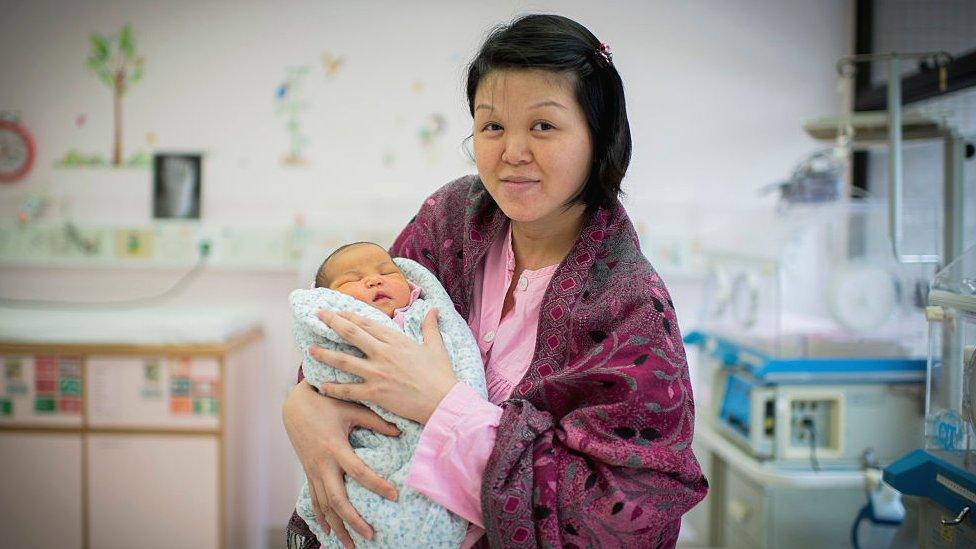Sichuan: Couples in Chinese province allowed to have unlimited children
- Published

Couples in China's Sichuan province will be allowed to have as many children as they want, as the country continues to try and get a grip on its declining population.
Last year, the population in China fell for the first time in 60 years.
For decades, the country had a one-child policy - increased nationally for married couples to three in 2021.
As part of the policy change in Sichuan, unmarried individuals will also now be able to raise children.
Previously there was a ban on single women registering a birth.
In 2016, China scrapped its controversial one-child policy, which was introduced in 1979. Families that broke the rules were fined and, in some cases even lost jobs.
In a culture that historically favours boys over girls, the policy also led to forced abortions.
But the changes that began in 2016 failed to halt the decline in the birth rate. Deaths outnumbered births for the first time last year in China.
Now, there will be no limit on the number of children people can have in Sichuan, a province of 80 million people in the south west of the country.
Chinese President Xi Jinping has made boosting birth rates a priority. The government has offered tax breaks and better maternal healthcare to reverse or slow the falling rates.
It comes as China is still battling Covid-related deaths throughout the country. The virus tore through towns and cities after the lifting of zero-Covid restrictions in December.
Neighbouring countries, including Japan, are also facing falling birth rates. Japan's prime minister says, as a result, his country is on the brink of not being able to function as a society.

- Published17 January 2023

- Published25 December 2018

- Published31 May 2021
